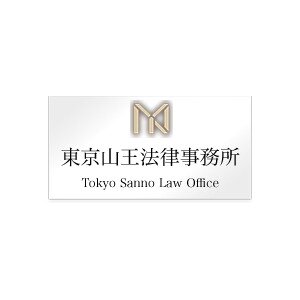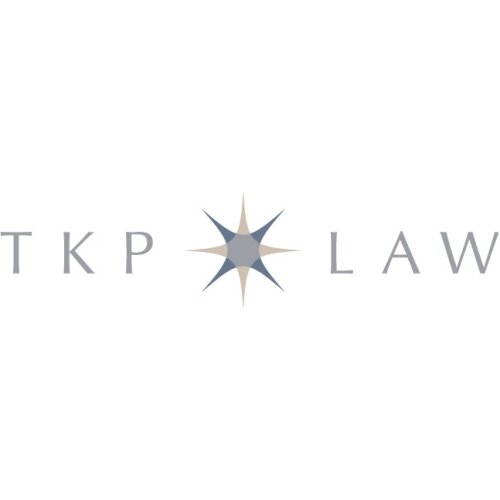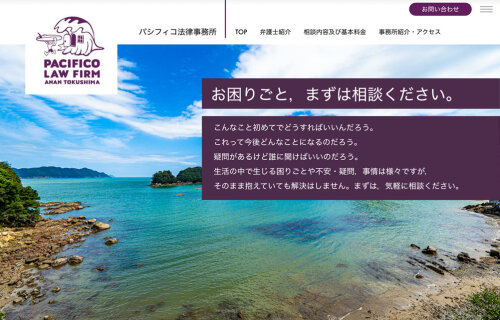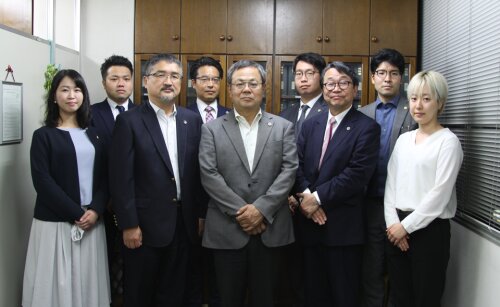Best Adoption Lawyers in Japan
Share your needs with us, get contacted by law firms.
Free. Takes 2 min.
Free Guide to Hiring a Family Lawyer
Or refine your search by selecting a city:
List of the best lawyers in Japan
About Adoption Law in Japan
Adoption in Japan is a legal process where a person or couple assumes the parental rights and responsibilities of a child, thereby making them their own. This can occur for various reasons, including expanding a family, providing care for a child in need, or formalizing the relationship between a stepparent and a stepchild. There are two primary types of adoption in Japan: regular adoption (futsu-yōshi) and special adoption (tokubetsu-yōshi), each with distinct legal implications and processes. The main difference lies in the severance of the biological parents' rights and the ability of adoptees to inherit from the biological parents in regular adoption.
Why You May Need a Lawyer
Adoption proceedings can be complex, requiring a nuanced understanding of family law and the ability to navigate intricate legal processes. Some common situations where legal help may be necessary include:
- Understanding the differences and legal implications of regular versus special adoption.
- Ensuring all necessary documents are correctly prepared and submitted.
- Navigating potential disputes regarding parental consent or the abandonment of children.
- Handling international adoption cases, which involve additional regulations and paperwork.
- Ensuring compliance with Japanese and, where applicable, international legal standards.
Local Laws Overview
The key aspects of local laws relevant to adoption in Japan include:
- Age Requirements: Adoptive parents must be at least 25 years old, or at least 20 if they are relatives of the child.
- Consent: Consent from the biological parents or legal guardians is typically required, unless they are untraceable or deemed incapable of consenting.
- Types of Adoption: Regular adoption maintains the biological family’s legal relationship, whereas special adoption severs this relationship and makes the adoptive parents the legal parents for all legal purposes.
- Inheritance Rights: In regular adoption, the adoptee retains inheritance rights from both their biological and adoptive families, while special adoption involves inheritance rights only from the adoptive family.
- Court Process: Special adoption requires court approval and a social inquiry to ascertain the best interests of the child.
Frequently Asked Questions
1. What is the difference between regular and special adoption in Japan?
Regular adoption maintains the legal relationship with the biological parents and allows inheritance from both families, while special adoption severs ties with the biological family and only permits inheritance from the adoptive parents.
2. Can single individuals adopt in Japan?
Yes, single individuals can adopt in Japan, but they must meet specific age and legal requirements, and demonstrate the ability to provide for the child.
3. What are the requirements for a foreigner to adopt a Japanese child?
Foreigners must comply with both Japanese legal requirements and the legal requirements of their home country, which often includes additional documentation and checks.
4. How long does the adoption process take in Japan?
The process can vary significantly but typically ranges from six months to several years, depending on the type of adoption and individual circumstances.
5. Is there a legal age limit for the child to be adopted?
Yes, generally, the child must be under 18 years old for special adoption.
6. Do adopted children in Japan have access to their biological family information?
For special adoption, access to biological family records is often sealed to protect the privacy of all parties involved.
7. What role does the family court play in adoption?
The family court oversees the adoption process, ensuring it serves the best interests of the child, particularly in special adoption cases.
8. How does adoption affect a child's nationality?
Adoption itself does not automatically change a child's nationality. Additional legal steps are required if nationality change is desired.
9. Can a step-parent adopt their stepchild in Japan?
Yes, step-parents can adopt their stepchildren; however, the consent of the biological parent may be required.
10. What is the role of adoption agencies in Japan?
Adoption agencies facilitate the matching process between adoptive parents and children, provide support and counseling, and assist with legal paperwork and processes.
Additional Resources
For additional support, individuals seeking legal advice on adoption in Japan may consider reaching out to the following resources:
- Japan Legal Support Center (Houterasu)
- Local family courts in Japan
- Japanese Ministry of Health, Labour, and Welfare
- Accredited adoption agencies throughout Japan
- International Social Service Japan
Next Steps
If you require legal assistance with adoption in Japan, consider the following steps:
- Consult with a lawyer specializing in family law to understand your rights and responsibilities.
- Gather necessary documentation, including identification and background checks.
- Engage with an accredited adoption agency for guidance through the process.
- Contact local family court for information on legal requirements and processes.
- Consider seeking support from adoption support groups or networks in Japan for additional guidance and community support.
Lawzana helps you find the best lawyers and law firms in Japan through a curated and pre-screened list of qualified legal professionals. Our platform offers rankings and detailed profiles of attorneys and law firms, allowing you to compare based on practice areas, including Adoption, experience, and client feedback.
Each profile includes a description of the firm's areas of practice, client reviews, team members and partners, year of establishment, spoken languages, office locations, contact information, social media presence, and any published articles or resources. Most firms on our platform speak English and are experienced in both local and international legal matters.
Get a quote from top-rated law firms in Japan — quickly, securely, and without unnecessary hassle.
Disclaimer:
The information provided on this page is for general informational purposes only and does not constitute legal advice. While we strive to ensure the accuracy and relevance of the content, legal information may change over time, and interpretations of the law can vary. You should always consult with a qualified legal professional for advice specific to your situation.
We disclaim all liability for actions taken or not taken based on the content of this page. If you believe any information is incorrect or outdated, please contact us, and we will review and update it where appropriate.
Browse adoption law firms by city in Japan
Refine your search by selecting a city.
















